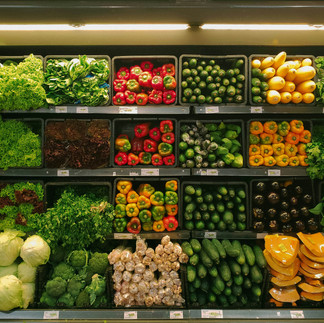Washington Can't Afford Cuts to Anti-Hunger Programs
- Backpack Brigade

- Apr 2, 2025
- 3 min read
Updated: Apr 4, 2025
“The Supplemental Nutrition Assistance Program (SNAP) is the nation’s most important and effective anti-hunger program. It plays a critical role in reducing poverty, improving health and economic outcomes, supporting people who are paid low wages, and serving as the first line of defense against hunger during economic downturns.”
– Center on Budget and Policy Priorities[1]
As you may know if you’ve been following us on social media, we here at Backpack Brigade are doing our best to advocate in Olympia for limited cuts to budget items that support social services, especially SNAP/WIC, school meal programs, and funding for food banks. While Backpack Brigade doesn’t receive any federal funding, and only a small percentage of our budget comes from state funds, many of the families we serve rely on these social support programs to make ends meet. Cuts to anti-hunger programs, especially, will have a wide-ranging and long-lasting impact on thousands of kids in Washington, and that’s what we want to talk about today.

Rapid food inflation, lack of affordable housing, and the escalating cost of health care make it tough to get ahead for many working families in Washington state. Even with two (or more!) jobs, wages don’t keep up with the high cost of living in Seattle and the surrounding areas. One unexpected setback – a job loss, a devastating diagnosis, an extra mouth to feed – can push a family into unsteady circumstances. Pay the rent or pay the medical bill? Keep the lights on or buy enough groceries for the week? Hard choices, choices no one was expecting to have to make, and now a family is struggling – and suffering.

Food assistance can be a much-needed lifeline for struggling families. The Supplemental Nutrition Assistance Program (SNAP) and Women, Infants, and Children (WIC) program are critical to family support here in Washington and across the whole country. Did you know that 1 in 9 (11%) Washington households receive SNAP assistance? And of those households, 53% of them have children? Did you know that 41,000 kids in Washington state are identified as homeless, and that those students rely on school meals as their primary source of nutrition? Did you know that food banks provide not only on-site access to food, but also home-delivery for elderly and disabled people, help accessing social support services, job-training, and so much more? Did you know that 12.2% of Washington’s children live below the poverty line, and that, on an annual average, 77,000 children who receive SNAP benefits are lifted above the poverty line?

Lifting children out of poverty results in better outcomes for them, for their families, for communities, and for our country. Children who have enough to eat are better able to focus in school, learn and retain more, and perform better on tests than those who do not. Children with better test scores are more likely to go on to post-secondary educational opportunities, thereby earning better jobs at higher salaries. An act as simple as making sure a child has enough to eat – all day, every day – can go a long way towards breaking cycles of generational poverty.

With proven benefits to both individuals and the economy, why would we as a society ever consider cutting this valuable program? In the face of budgetary shortfalls, this is exactly what Washington is considering this legislative session, not to mention the much larger cuts at the federal level. Cutting these programs puts too many families and too many children in jeopardy of hunger and ever-increasing depths of poverty. It can’t be allowed, and there is something YOU can do.
SPEAK UP! Your voice matters to your legislators at both the federal and state level and it matters to the governor. You can acknowledge the difficulty of balancing a budget with so many competing priorities while insisting that meeting basic human needs remains the government’s first priority.
Here’s how:
Find your legislators
Call or email them before April 6th.
Tell them:
SNAP is a lifeline for 77,000 kids in Washington state who would otherwise go hungry and should be fully funded.
School meal programs are vital to both short- and long-term childhood health outcomes and should be funded at all costs.
Food banks provide critical supplementary food access to families and should be funded.
That you believe consistent access to quality food is a basic right of every Washingtonian, and that the future health and wellbeing of the state depends on funding critical anti-hunger programs.
Together, we can END hunger in Washington state. Be a part of the solution and act today.
[1] Center on Budget and Policy Priorities, “SNAP Fact Sheet,”, January 21, 2025









Comments